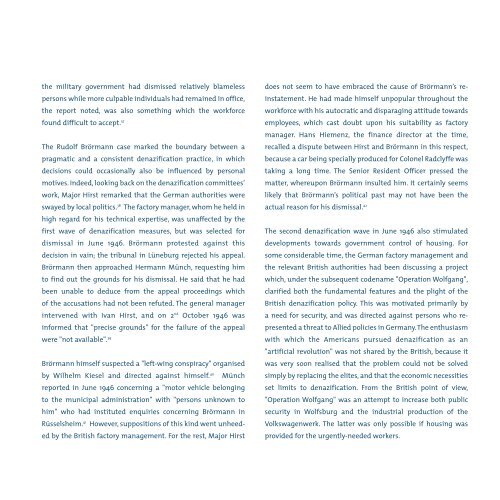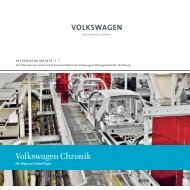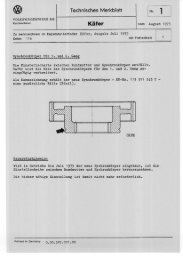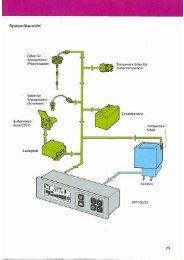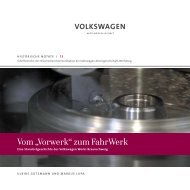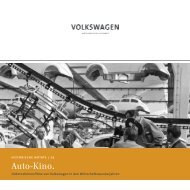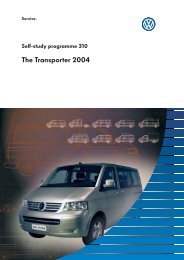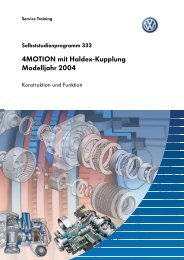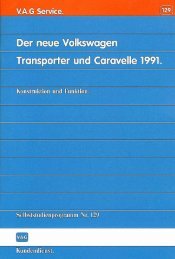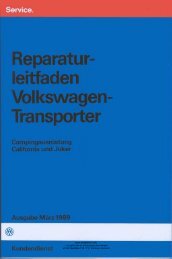HN 2: The British and their Works
HN 2: The British and their Works
HN 2: The British and their Works
Create successful ePaper yourself
Turn your PDF publications into a flip-book with our unique Google optimized e-Paper software.
the military government had dismissed relatively blameless<br />
persons while more culpable individuals had remained in office,<br />
the report noted, was also something which the workforce<br />
found difficult to accept. 37<br />
<strong>The</strong> Rudolf Brörmann case marked the boundary between a<br />
pragmatic <strong>and</strong> a consistent denazification practice, in which<br />
decisions could occasionally also be influenced by personal<br />
motives. Indeed, looking back on the denazification committees’<br />
work, Major Hirst remarked that the German authorities were<br />
swayed by local politics. 38 <strong>The</strong> factory manager, whom he held in<br />
high regard for his technical expertise, was unaffected by the<br />
first wave of denazification measures, but was selected for<br />
dismissal in June 1946. Brörmann protested against this<br />
decision in vain; the tribunal in Lüneburg rejected his appeal.<br />
Brörmann then approached Hermann Münch, requesting him<br />
to find out the grounds for his dismissal. He said that he had<br />
been unable to deduce from the appeal proceedings which<br />
of the accusations had not been refuted. <strong>The</strong> general manager<br />
intervened with Ivan Hirst, <strong>and</strong> on 2nd October 1946 was<br />
informed that "precise grounds" for the failure of the appeal<br />
were "not available". 39<br />
Brörmann himself suspected a "left-wing conspiracy" organised<br />
by Wilhelm Kiesel <strong>and</strong> directed against himself. 40 Münch<br />
reported in June 1946 concerning a "motor vehicle belonging<br />
to the municipal administration" with "persons unknown to<br />
him" who had instituted enquiries concerning Brörmann in<br />
Rüsselsheim. 41 However, suppositions of this kind went unheeded<br />
by the <strong>British</strong> factory management. For the rest, Major Hirst<br />
does not seem to have embraced the cause of Brörmann’s reinstatement.<br />
He had made himself unpopular throughout the<br />
workforce with his autocratic <strong>and</strong> disparaging attitude towards<br />
employees, which cast doubt upon his suitability as factory<br />
manager. Hans Hiemenz, the finance director at the time,<br />
recalled a dispute between Hirst <strong>and</strong> Brörmann in this respect,<br />
because a car being specially produced for Colonel Radclyffe was<br />
taking a long time. <strong>The</strong> Senior Resident Officer pressed the<br />
matter, whereupon Brörmann insulted him. It certainly seems<br />
likely that Brörmann’s political past may not have been the<br />
actual reason for his dismissal. 42<br />
<strong>The</strong> second denazification wave in June 1946 also stimulated<br />
developments towards government control of housing. For<br />
some considerable time, the German factory management <strong>and</strong><br />
the relevant <strong>British</strong> authorities had been discussing a project<br />
which, under the subsequent codename "Operation Wolfgang",<br />
clarified both the fundamental features <strong>and</strong> the plight of the<br />
<strong>British</strong> denazification policy. This was motivated primarily by<br />
a need for security, <strong>and</strong> was directed against persons who represented<br />
a threat to Allied policies in Germany.<strong>The</strong> enthusiasm<br />
with which the Americans pursued denazification as an<br />
"artificial revolution" was not shared by the <strong>British</strong>, because it<br />
was very soon realised that the problem could not be solved<br />
simply by replacing the elites, <strong>and</strong> that the economic necessities<br />
set limits to denazification. From the <strong>British</strong> point of view,<br />
"Operation Wolfgang" was an attempt to increase both public<br />
security in Wolfsburg <strong>and</strong> the industrial production of the<br />
Volkswagenwerk. <strong>The</strong> latter was only possible if housing was<br />
provided for the urgently-needed workers.


